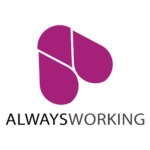In the world of remote work, fostering strong connections with your peers can be challenging, yet essential to achieving long-term success, both professionally and personally. Having a supportive community of like-minded professionals can help you collaborate, share experiences, and explore opportunities that further your career growth. In this article, we will delve into various online platforms and strategies that can help you develop connections in the remote work community and grow your professional network.
Social Media Networking: The Power of Online Connections
Leveraging social media platforms is a powerful method for building connections, expanding your network, and showcasing your expertise to potential employers and collaborators.
1. LinkedIn: A Professional Networking Powerhouse
LinkedIn is an invaluable tool for remote workers looking to connect with a vast community of professionals in their industry. By optimizing your LinkedIn profile, sharing meaningful content, and engaging in relevant groups, you can form new connections and grow your professional network.
2. Twitter: Staying Connected to Remote Work Conversations
Twitter is an excellent platform for joining real-time conversations on remote work trends, opportunities, and challenges. Expand your network by following industry thought leaders, engaging in Twitter chats, and participating in relevant hashtag discussions.
3. Facebook Groups: Joining Communities of Remote Workers
There are numerous Facebook groups dedicated to remote workers, freelancers, and digital nomads. Joining these groups enables you to connect with fellow remote professionals, exchange ideas and resources, and keep informed about relevant job postings and news.
Industry-Specific Communities and Forums: Delving Deeper into Your Niche
Online communities and forums can provide access to a wealth of networking opportunities and industry-specific insights, essential for remote workers in specialized fields.
1. Reddit: Exploring Subreddits for Your Field
Reddit, the ‘front page of the internet,’ hosts numerous communities or “subreddits” dedicated to various industries and topics. Find subreddits relevant to your field and actively participate in discussions to share your knowledge, ask questions, and connect with professionals sharing similar interests.
2. Slack Communities: Joining Industry-Specific Conversations
Aside from being a popular communication tool, Slack also hosts various public communities focused on different industries and roles. Joining relevant Slack groups can help you engage with others in your niche, exchange useful information, and foster valuable connections.
3. Niche Forums and Websites: Delving into Specialized Discussions
Industry-specific forums and websites can offer more targeted networking opportunities and in-depth insights. Engage in these communities, provide value through knowledge-sharing, and ask meaningful questions to foster meaningful connections with like-minded professionals.
Virtual Networking Events and Webinars: Staying Connected and Informed
Attending virtual networking events, webinars, and conferences can help you stay informed about industry trends, connect with experts, and showcase your expertise to potential collaborators and employers.
1. Online Networking Events: Building Connections Virtually
Virtual networking events, like Meetup.com, offer opportunities for remote workers to engage with professionals in their industry. By actively participating in these events, you can build your network and develop strong relationships with others who share your passion for remote work.
2. Webinars: Enhancing Knowledge and Expanding Networks
Webinars present an opportunity to learn about the latest industry trends and best practices, while also providing a platform for remote workers to engage with experts and peers. Attend webinars in your niche to stay informed and connect with professionals who share your interests.
3. Virtual Conferences: Immersing Yourself in Your Industry
Virtual conferences offer remote workers the chance to attend keynote presentations, panel discussions, and workshops without leaving their home office. These events not only keep you updated on the latest industry news but also provide opportunities to connect with professionals from around the world.
Conclusion
Building your remote work network is crucial for both professional and personal development, ensuring that you are well-connected within your industry and actively engaged with like-minded professionals. By exploring various online platforms, participating in niche communities, and attending virtual events, you can create a supportive and thriving network that propels you towards success in your remote job or side hustle. Remember, effective networking takes time, effort, and genuine connection. Stay open to learning from your peers, share your knowledge and resources, and be genuinely interested in fostering meaningful relationships to make the most of your remote work journey.
At Always Working, our goal is to assist you in discovering the perfect job, supplementary work, or side gig tailored to your needs. Acquire the skills to generate a higher income through additional ventures than your regular 9-5 job. For more career development tips, reach out to us today!








